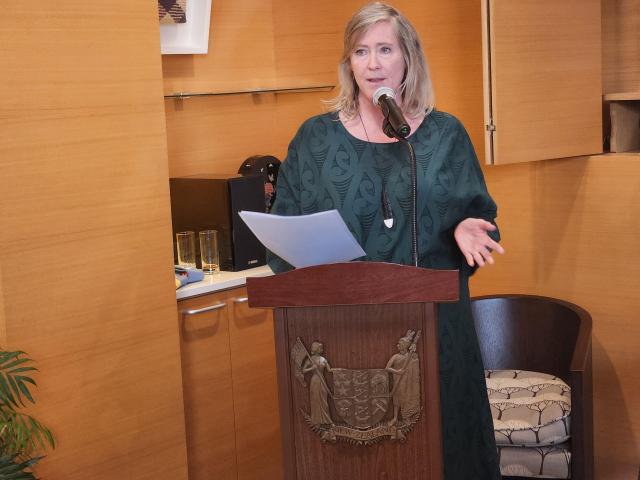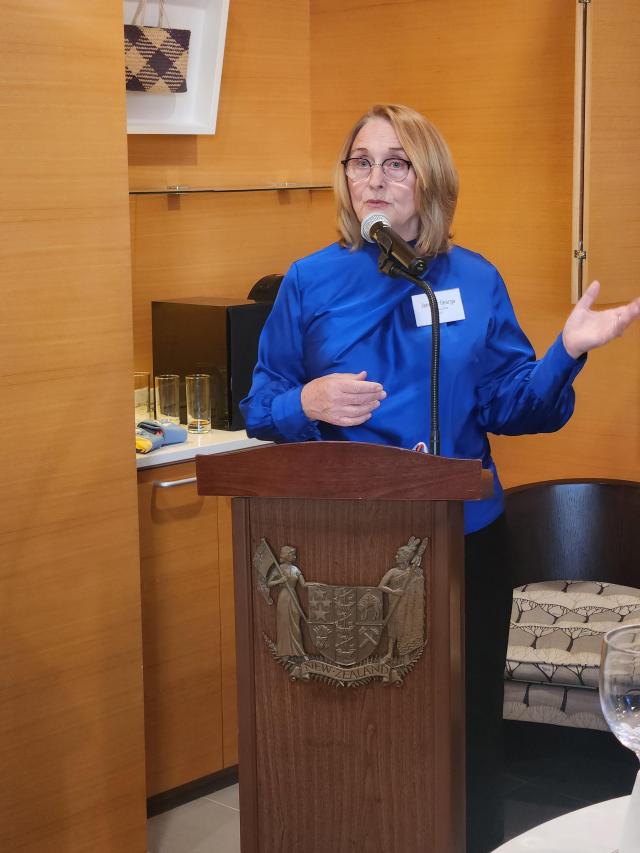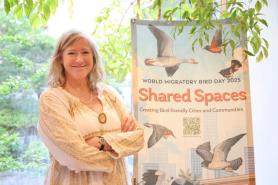
SEOUL, May 17 (AJU PRESS) - Dawn Bennet, the New Zealand ambassador to the Republic of Korea, emphasized Thursday that efforts to conserve the natural environment, including insects, will help protect migratory birds that travel thousands of kilometers from countries in the southern hemisphere to Korea and Alaska.
During a commemoration event held to mark the World Migratory Bird Day at the New Zealand ambassador's residence near central Seoul, Bennet specifically spoke about the bar-tailed godwits, or kuaka in New Zealand's indigenous Māori language, to describe how the birds connect New Zealand and Korea.
Every year, kuaka birds embark on a journey that is about 30,000 kilometers (18,641 miles) from New Zealand to mudflats on the southwestern coast of Korea and finally to western Alaska.
"Migratory birds serve as a really poignant reminder of the interconnectedness of our ecosystems and the importance of international cooperation and conservation efforts," Bennet said, adding that the kuaka birds hold deep cultural significance as it served as a navigational beacon for Polynesian explorers centuries ago.
The Kiwi Ambassador said that wetlands, including the mudflats along the west coast of Korea, are crucial waypoints for kuaka birds and that the species could be entirely wiped out if their main food source—insects—are reduced by man-made factors such as habitat loss from construction, climate change, and pesticide use.

The commemorative event was jointly held by the New Zealand Embassy in Seoul and the East Asian-Australasian Flyway Partnership (EAAFP), an international network dedicated to the conservation of migratory waterbirds and their habitats along the East Asian-Australasian Flyway (EAAF).
EAAFP's Chief Executive Jennifer George said that if insect habitats along the West Sea, also known as the Yellow Sea, are damaged, two things could happen to migratory birds: "One is that they cannot make the 6,000-kilometer trip journey from Korea to Alaska and then fall out of the sky and die. The other situation that would happen is that they cannot breed. The whole thousands of kilometers of trip will be wasted," George explained.
The EAAFP chief pointed out that the wetlands along the West Sea are the most important place on earth for migratory birds: "The wetlands and mudflats in the area are the most important wetlands, and Korea, which has bilateral relationships with New Zealand and Australia, should conserve those lands."
Copyright ⓒ Aju Press All rights reserved.




